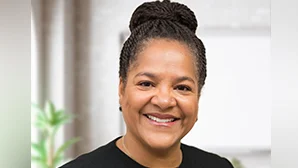Renée Branch Canady, PhD, MPA Chief Executive Officer at Michigan Public Health Institute | Official website
Renée Branch Canady, PhD, MPA Chief Executive Officer at Michigan Public Health Institute | Official website
The Michigan Child Welfare Improvement Task Force, part of MPHI's Center for Racial and Social Justice, has released a progress report. The initiative supports the Michigan Department of Health and Human Services in ensuring safe and equitable treatment for all children and families in the state. A key focus is addressing disparities that have historically resulted in an overrepresentation of children of color within the child welfare system.
This year, the Task Force highlighted several achievements. Notably, there was a reduction in Child Protective Services complaints assigned for investigation, suggesting more families are being directed to prevention services rather than CPS intervention. The number of children in the child welfare system decreased from 11,479 in September 2020 to 9,480 this September. Similarly, the number of children of color in the system fell from 5,888 to 5,525.
Despite these successes, challenges remain. Approximately 250 children are removed from their homes each month. The Task Force aims to reduce this by improving access to prevention and community services. Additionally, children of color are disproportionately placed in foster care and tend to stay longer or age out without a family. Although they represent 32% of Michigan's child population, they account for 58% of child welfare cases.
Paul Elam, Chief Strategy Officer, stated: “It is very clear we need a broader continuum of care to address concerns that kids are languishing in the system.” He emphasized collaboration with MDHHS to develop this new continuum.
The Task Force also addressed issues related to residential treatment centers. A work group found that children often move between institutions without receiving effective treatment or aftercare planning. Despite recent reductions, there are still 341 foster children in these centers. Demetrius Starling, co-chair and MDHHS’s senior deputy director, stressed the importance of innovative alternatives while acknowledging ongoing demand for such facilities.
Karen Braxton, Wayne County Circuit Judge and Task Force co-chair, expressed satisfaction with progress but recognized more work is needed: “We do want to celebrate the win... When you see that the disparities are increasing... We need to look at why they are coming into care...” She also highlighted the importance of listening to youth within the system for further improvements.
For additional information about their initiatives and efforts:
- About – Michigan Child Welfare Improvement Task Force
Further resources include:
- Equity in Action (EIA) Series at MPHI: https://loom.ly/smgOVRc




 Alerts Sign-up
Alerts Sign-up